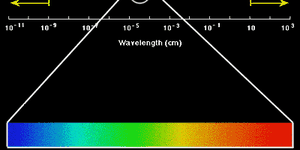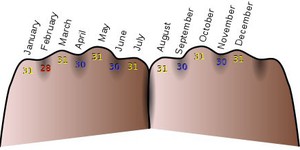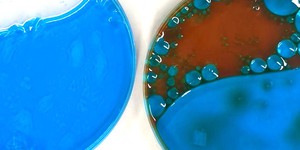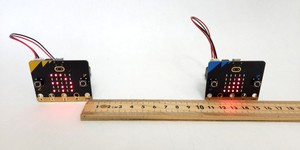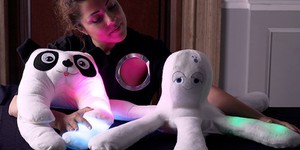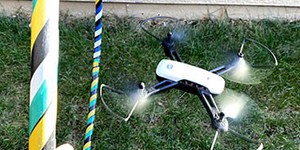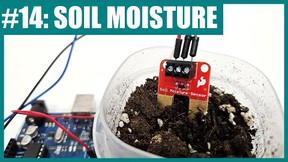Third Grade, Human Behavior Science Projects (12 results)
If you're interested in learning more about how people think, what motivates them, how well their memories work, or any other of the fascinating things that make us human, then you're in the right place!
|
Select a resource
Coding Projects
Sort by
|
You know how to make new colors by mixing paint or crayons. For example, you get green by mixing yellow and blue, or orange by mixing red and yellow. With paint, blue, yellow, and red are primary colors, which you can use to make other colors. Have you ever tried making colors with light? Are the primary colors the same ones you use for paint? Do this experiment and find out.
Read more
Have you ever had to remember a long list of planets or the state capitals? These kinds of lists are full of interesting facts, but they can be hard to remember, especially for tests. What could you do to remember the list better? In this human behavior science fair project, you will learn about a memory technique called mnemonics (pronounced nuh-MAH-nicks) and investigate whether using mnemonics can help you and your friends remember lists of words.
Read more
New
Have you ever walked next to your favorite ocean, lake, or creek and seen plastic waste everywhere? Have you ever thought about how much plastic breaks down into microplastics and pollutes waterways? Scientists are coming up with new ways to remove these microplastics from our waterways, and now you can test them out for yourself at home.
Read more
Have you ever heard the phrase, "Seeing is believing"? Well, it is more accurate than you might think! In this science project, you can investigate the phenomenon of apparent motion by making your own flip-book animations
Read more
This project shows that our perceptions can change, even with the stimulus remains the same. A clear color difference in an image disappears after just 20 seconds of looking at another (special) image. Now you see it, now you don't!
Read more
Have you ever wondered if some shapes have certain "sounds" to people, even if they have different native languages? For example, does everyone match certain physical characteristics, like sharpness or roundness, with certain sounds? Are there certain human sounds with meanings that can cross the language barrier? In this science project you will investigate this by testing the Bouba-Kiki Effect—will it turn out that abstract visual properties can be linked to sound?
Read more
New
Are you ever annoyed by a poor Wi-Fi signal? What about when you try to send a text message, and it just won't go through because of poor cell service? Have you ever wondered what factors affect the strength of your signal and the speed of the connection? If so, this project is for you!
Read more
Do you think robots are cute? Funny? Scary? How do robots make you feel? What words would you choose to describe a robot? Find out how people react to robots by building and decorating your own robot in this science project.
Read more
If someone asks you to draw a picture of a doctor, lawyer, or engineer, what first pops into your mind? The race and gender of the person you imagine might be shaped by your personal life experiences, such as whether you have family members in those professions, or what representations of them you have seen on TV or online. What do you think will happen if you ask an artificial intelligence (AI) program to generate the picture instead? Will pictures generated by AI reflect the true real-world…
Read more
Have you ever flown a drone? Did you find it easy the first time you tried? In this project, you will fly a drone through an obstacle course and measure how practice changes your performance. Will practice help you finish the course in less time? Try it out!
Read more
What is your favorite color and why? Do you think that simple tasks might be biased by your preferences? Find out in this science project if your color preferences will bias your fine motor skills when doing quick, repetitive tasks.
Read more
Do you like to read? Did you know that most people read without even thinking about it? Find out in this experiment how a simple reading/color test called the Stroop Effect can show you how your brain works.
Read more
|

